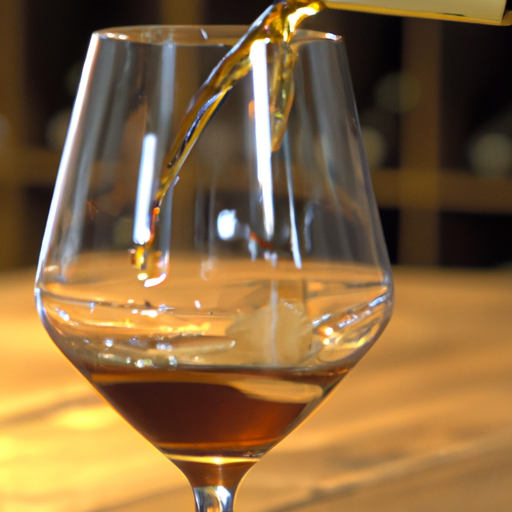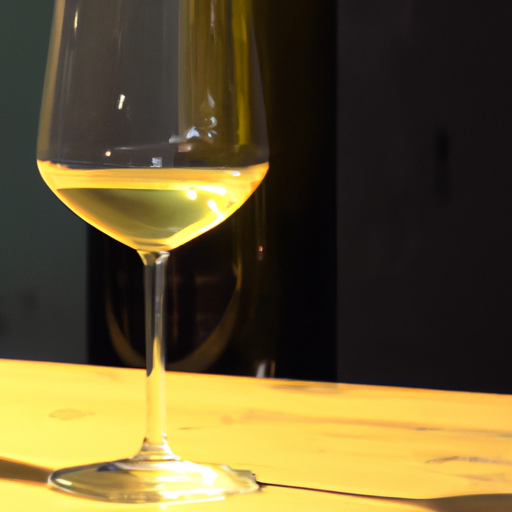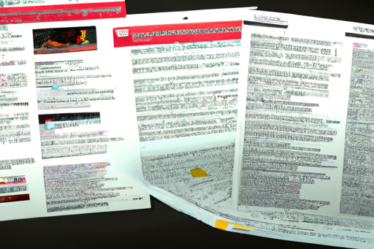
Climate Change and its Impact on Wine Production
The Future of Wine: In Vino Veritas
Climate Change and its Impact on Wine Production
Climate change is a topic that has been making headlines for years now, and its effects are being felt in various industries around the world. One industry that is particularly vulnerable to the changing climate is the wine industry. As temperatures rise and weather patterns become more unpredictable, winemakers are facing new challenges in producing high-quality wines. In this article, we will explore the impact of climate change on wine production and discuss how winemakers are adapting to ensure the future of this beloved beverage.
One of the most significant ways in which climate change is affecting wine production is through shifts in temperature. Warmer temperatures can lead to grapes ripening too quickly, resulting in wines that lack complexity and balance. Additionally, higher temperatures can also increase the risk of pests and diseases, which can devastate vineyards. Winemakers are now having to carefully monitor their vineyards and adjust their practices to mitigate these risks. For example, some winemakers are experimenting with different grape varieties that are better suited to warmer climates, while others are implementing new irrigation techniques to help regulate temperature and water availability.
Another consequence of climate change is the alteration of weather patterns. Extreme weather events such as droughts, floods, and hailstorms are becoming more frequent, posing a significant threat to vineyards. These events can damage or destroy grapevines, leading to reduced yields and lower-quality wines. To combat this, winemakers are investing in protective measures such as hail nets and windbreaks to shield their vineyards from the elements. Additionally, some winemakers are exploring the use of technology, such as weather monitoring systems, to better predict and prepare for extreme weather events.
In addition to temperature and weather changes, climate change is also impacting the terroir of wine regions. Terroir refers to the unique combination of soil, climate, and geography that gives wines their distinct characteristics. As the climate changes, the terroir of certain regions may no longer be suitable for growing certain grape varieties. This could lead to a shift in the traditional wine regions and the emergence of new ones. Winemakers are now studying the changing terroir and experimenting with different grape varieties to adapt to these changes. This not only ensures the future of wine production but also allows for exciting new flavors and styles to emerge.
While climate change presents numerous challenges for the wine industry, it also offers opportunities for innovation and adaptation. Winemakers are embracing sustainable practices such as organic and biodynamic farming to reduce their carbon footprint and preserve the environment. They are also exploring alternative winemaking techniques, such as carbonic maceration and amphora aging, to create unique and expressive wines. Additionally, winemakers are collaborating with scientists and researchers to better understand the impact of climate change on wine production and develop strategies to mitigate its effects.
In conclusion, climate change is undoubtedly having a profound impact on wine production. From shifts in temperature and weather patterns to changes in terroir, winemakers are facing new challenges in producing high-quality wines. However, they are also rising to the occasion, implementing innovative practices and techniques to adapt to the changing climate. The future of wine may be uncertain, but with the resilience and creativity of winemakers, we can be confident that in vino veritas – in wine, there is truth.
Technological Advancements in Winemaking

The Future of Wine: In Vino Veritas
Technological Advancements in Winemaking
Wine has been a beloved beverage for centuries, with its rich history and cultural significance. However, as we move into the future, the world of winemaking is undergoing a technological revolution. From vine to bottle, advancements in technology are transforming the way wine is produced, enhancing quality, and pushing the boundaries of what is possible.
One area where technology is making a significant impact is in vineyard management. Traditionally, winemakers relied on their knowledge and experience to determine when to harvest the grapes. However, with the advent of new technologies, such as remote sensing and drones, winemakers can now monitor their vineyards with unprecedented precision. These tools allow them to gather data on soil moisture, temperature, and even the health of individual vines. By analyzing this data, winemakers can make more informed decisions about when to harvest, resulting in grapes that are perfectly ripe and full of flavor.
Once the grapes have been harvested, technology continues to play a crucial role in the winemaking process. One of the most significant advancements in recent years is the use of artificial intelligence (AI) in fermentation. AI algorithms can analyze data from sensors placed in the fermentation tanks, monitoring factors such as temperature, sugar levels, and yeast activity. This real-time data allows winemakers to make adjustments as needed, ensuring that the fermentation process is optimal. The result is wines that are more consistent in quality and flavor.
Another area where technology is revolutionizing winemaking is in the aging process. Traditionally, wines were aged in oak barrels, which imparted flavors and aromas to the wine. However, this process was time-consuming and expensive. Now, winemakers have the option of using oak alternatives, such as oak chips or staves, which can achieve similar results in a fraction of the time. Additionally, advancements in temperature and humidity control systems have made it possible to create the perfect aging conditions in a fraction of the space. This means that winemakers can produce high-quality, aged wines without the need for extensive cellars.
Technology is also transforming the way wine is enjoyed and experienced by consumers. Virtual reality (VR) and augmented reality (AR) are being used to create immersive wine tasting experiences. With VR, wine enthusiasts can virtually visit vineyards, learn about the winemaking process, and even participate in virtual tastings. AR, on the other hand, allows consumers to scan wine labels with their smartphones and access additional information about the wine, such as tasting notes and food pairing suggestions. These technologies are not only enhancing the consumer experience but also making wine more accessible to a wider audience.
In conclusion, the future of wine is being shaped by technological advancements in every aspect of the winemaking process. From vineyard management to fermentation and aging, technology is allowing winemakers to produce wines of unparalleled quality and consistency. Additionally, technology is enhancing the consumer experience, making wine more accessible and enjoyable for all. As we raise our glasses to the future, it is clear that in vino veritas, the truth lies in the innovative and exciting possibilities that technology brings to the world of wine.
Changing Consumer Preferences and the Future of Wine Marketing
The Future of Wine: In Vino Veritas
Changing Consumer Preferences and the Future of Wine Marketing
In the ever-evolving world of wine, consumer preferences are constantly changing. As new generations come of age and technology continues to advance, the wine industry must adapt to meet the demands of a new era. This article will explore the changing consumer preferences and the future of wine marketing.
One of the most significant shifts in consumer preferences is the increasing demand for organic and sustainable wines. As people become more conscious of their impact on the environment, they are seeking out wines that are produced using environmentally friendly practices. This trend is not limited to just the wine industry; it is a reflection of a larger movement towards sustainability in all aspects of life. Wineries that can demonstrate their commitment to sustainability will have a competitive advantage in the future.
Another important factor in the changing consumer preferences is the rise of the millennial generation. Millennials are known for their adventurous and experimental nature, and this extends to their wine choices. They are more willing to try new and unique wines from lesser-known regions, rather than sticking to traditional favorites. This presents an opportunity for wineries to diversify their offerings and cater to this adventurous spirit.
Technology is also playing a significant role in shaping the future of wine marketing. With the rise of social media and online platforms, wineries have a direct line of communication with consumers. They can engage with their audience, share their story, and build a loyal following. This direct interaction allows wineries to create a personalized experience for their customers, which can lead to increased brand loyalty and sales.
In addition to social media, technology is also revolutionizing the way wine is sold. Online wine retailers and subscription services are becoming increasingly popular, allowing consumers to have wine delivered directly to their doorstep. This convenience factor is particularly appealing to busy individuals who may not have the time to visit a physical store. As technology continues to advance, we can expect to see even more innovative ways of selling and delivering wine.
The future of wine marketing will also be influenced by the growing interest in wine tourism. Wine regions around the world are attracting visitors who want to experience the culture, history, and beauty of these areas. Wineries that can offer a unique and memorable experience to visitors will have a competitive advantage. This could include guided tours, tastings, and even accommodation options. By creating a destination experience, wineries can not only sell their wine but also create a lasting impression on their customers.
In conclusion, the future of wine is bright and full of opportunities. As consumer preferences continue to evolve, wineries must adapt to meet the demands of a new era. This includes producing organic and sustainable wines, catering to the adventurous spirit of millennials, utilizing technology for marketing and sales, and creating unique experiences for wine tourists. By embracing these changes, wineries can thrive in the ever-changing world of wine. In vino veritas, indeed.


